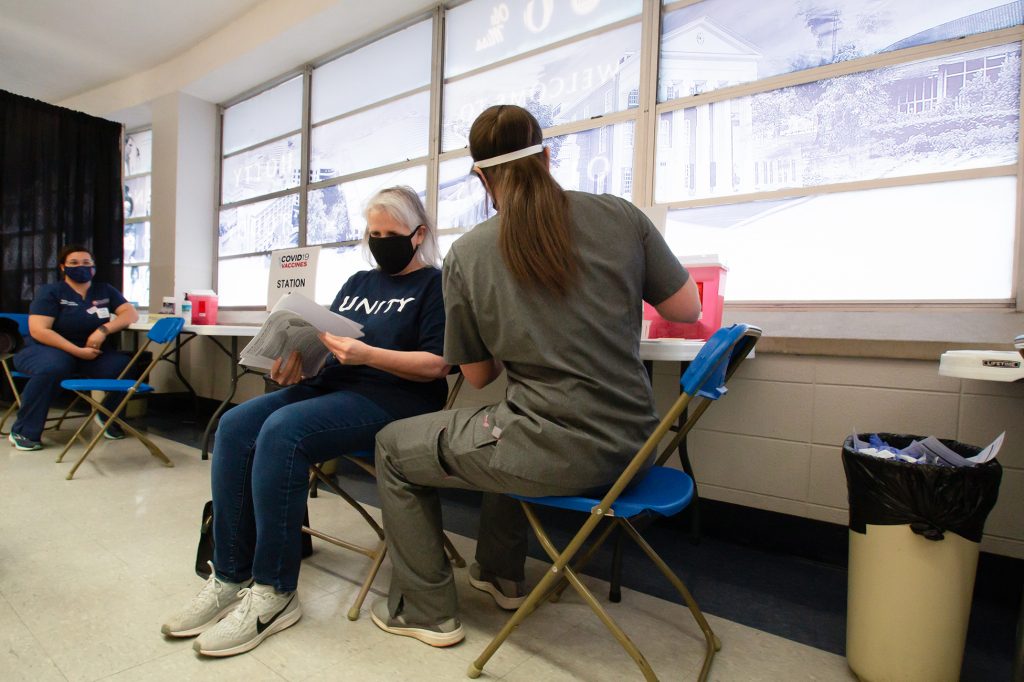The 150% rise in hate crimes toward Asian Americans in 2020 — combined with hundreds of years of American anti-Asian sentiment, imperialism and bigoted presidents —came to a climax last week in Georgia. In an undeniably racialized and gendered tragedy, a white man shot eight people, including six Korean women, while shouting “I am going to kill all Asians.” While I recommend that you read an article about the violence that occurred last week, honestly, I have not. I know the lead-up to that violence all too well.
Before I had ever been to the South, I was fearful of what it might be like to attend the University of Mississippi because of the racism my Filipino grandparents faced in the region. In the 1990s, when my grandparents moved to Birmingham for my Papa’s work, they showed up to Sunday mass at the Catholic Church, only to find it shuttered. They found the priest, who informed them that the KKK was scheduled to show up nearby that day.
The fact that an organization founded to terrorize Black Americans also targeted Asian Americans shows that though these groups experience racism in different ways, Black Americans and Asian Americans share a common struggle against white supremacy.
As we know all too well at this university, racism is not a relic of the past, but a present that so many choose to ignore, or even worse, cherish. Even as recently as in my parents’ lifetimes, my parents would not have been able to get married due to anti-miscegenation laws.
While working on the ASB legislation to relocate the Confederate statue, a journalist interviewed me and asked about why I worked on the initiative. To me, it meant solidarity in the removal of a white supremacist symbol that sought to oppress Black Americans, as well as other minorities in the country. When I saw the published article, it explicitly labeled me as a white activist.
I am white and Asian — half-Filipino American, half-German American — but what this signaled to me was not only a deliberate erasure of my identity but also my struggles as an Asian American student in the South.
I’ve had people flirt with me at my former on-campus job, asking me “Where are you from?” Unsatisfied with “St. Louis” as an answer, they continued to pester and leer asking, “No, where are you REALLY from?” I have told close friends about my heritage, only for a reproachful response of “My nanny was Filipino. Do you eat dogs, too?”
The gendered element of this violence is unignorable. While the shooter said his actions were based on his sex addiction, he clearly had fed into the violent fetishization of Asian women.
As a majority of Asian Americans live on the coasts, being Asian in the South can be an isolating experience. Being Asian and a mixed person in this environment is especially isolating to navigate, as I fall outside of the conventional Black and white racial binary. The racism that I face as an Asian American is different from that of different racial and ethnic backgrounds, but it is deeply embedded in a history of white supremacy.
The Latino husband of one of the victims was held in custody as a suspect by the same police force that labeled the real shooter as just having a “really bad day” as a white guy. People of color were reminded once again that people will do anything to silence and ignore centuries of bigotry, reducing it to individual action to treat racism as a problem of years past. Only when we embrace an understanding of racism as interconnected do we begin to move forward to dismantling the institutions and ideas that allow all forms of prejudice to exist.
Deconstruct, understand and reject your stereotypes — I am not silent; I am not submissive. But I am tired: tired of the fear that I have for my loved ones traveling alone, tired of the stereotypes inflicted on Asians, particularly Asian women, tired of hearing about half of the world’s population as a monolith and tired of having to explain why I am tired.
Katie Dames is the opinion editor from Saint Louis, Mo., majoring in international studies.















